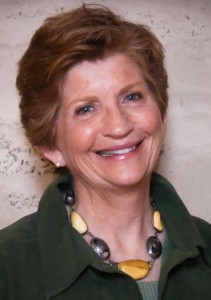 We each grew up in a neighborhood and it left its mark on us. Most of the kids living there were a lot like you … and their parents were like your parents. Even the houses were about the same, although there were exceptions: the run-down house at the end of the street that the crazy old spinster had never maintained or the McMansion owned by the couple whose business had boomed and who chose to upgrade their house rather than move.
We each grew up in a neighborhood and it left its mark on us. Most of the kids living there were a lot like you … and their parents were like your parents. Even the houses were about the same, although there were exceptions: the run-down house at the end of the street that the crazy old spinster had never maintained or the McMansion owned by the couple whose business had boomed and who chose to upgrade their house rather than move.
Regardless of the houses, everyone ran into one another in the course of their everyday lives, whether at the grocery story or at school events. They shared churches, employers, dentists, sports teams, pizza joints, and the local tax preparer. And, regardless of what went on behind all those front doors, people shared experiences, aspirations and (to a great extent) “financial neighborhoods.”
What is a financial neighborhood? It is defined in large part by the richest people we know at the top, and the least well off at the bottom. And we fall somewhere in between. Our financial neighborhood defines the financial comfort zone that was created by having socialized and interacted with people in that particular range. Those people are familiar and we feel we know them, whether we’re intimate with them or not.
We have fewer surprises with people in our own financial neighborhood. We know pretty much what to expect from them, we know where we fit in this pecking order, and we have a good idea what behaviors are expected of us.
The word is … “comfortable.”
That is actually our financial comfort zone. While financial wealth and circumstance per se go way higher than our personal ceiling and way lower than our personal floor, our money beliefs and experiences define that band where we feel at home. Unstressed. And most of us will unconsciously limit ourselves to earning within that band so we don’t stray too far and risk being cut off from our peers.
Breaking Through the Top
What happens when someone breaks through her self-imposed financial ceiling? Say she gets promoted to where she’s earning way more than anyone in her comfort zone. Unless she’s prepared for it, she’ll do whatever she can to return to her comfort zone as outsiders watch and wonder what the heck she’s thinking. She may sabotage the opportunity itself or find ways to commit the money elsewhere so what she has access to stays within an acceptable range. Or she might just hide the fact from those in her inner circle and live with the constant stress of being found out.
Think of lottery winners. They become masters at burning through their money so they can get back to their comfort zone. The same holds true for people who receive large insurance payouts, as well as for athletes who start earning huge salaries and bonuses. Most have no experience in managing money in such large amounts, so they lose it through bad investments. Or they might just spend it all or give it all away … all with the subconscious goal of remaining within their comfort zone.
Falling Through the Bottom
The financial crisis that began in 2008 has brought about countless cases where people lose jobs or their businesses fail, and they find themselves unable to maintain their old lifestyle. In order to stay within their financial comfort zone, at least to outside eyes, they may continue spending on credit cards or other forms of financing. Their goal is to be sure no one in their circle of friends and acquaintances finds out their real status. The result? They often fall even further, unless they somehow manage to turn things around before foreclosure and other “indignities” strike.
Why Changes in Financial Neighborhoods Make You Uncomfortable
Imagine moving up from the neighborhood you’re comfortable in … to one your parents referred to as “hoity-toity.” Imagine being where you don’t know the rules. Imagine being ostracized by the very people who grew up with you and cheered you on … before you succeeded beyond their (and your) wildest dreams.
The result is isolation. Or feeling misunderstood or judged for the very thing you’re most proud of.
In the other direction, imagine scaling down below your existing standard of living. While you might be able to handle the physical aspect of such a move, imagine how many of your friends you will lose because you no longer fit within their comfort zone.
How Your Financial Comfort Zone Can Save You
When it comes to downward mobility, that’s where your financial comfort zone can save you. As you approach the lower limit of your financial comfort zone, an automatic drive will kick in that will do everything possible to shift you back up to equilibrium. Under normal circumstances, this should be enough to set a fire under someone and get them back to where they belong. However, the 2008 financial crisis has made that option a bit more difficult, resulting in people falling through the bottom as we mentioned above.
But this drive towards equilibrium is what explains the ability of successful business owners to lose everything and be back in business soon thereafter, headed towards success again. The stress of falling outside their financial comfort zone is what leads them to pull out all stops and get back to “their” normal … given the opportunity.
Our money beliefs define us and make us full-fledged members of a certain group of people. The same beliefs that make us a part of a group … also serve to exclude all others that don’t meet the same criteria. So when we move above or below the limits of that group, our greatest fear is of being ostracized by the group to which we had belonged.
Prepare Yourself If You’re Changing Financial Neighborhoods
Upward mobility can be handled, but it does require that you get inside your own head and get real clear about where you’re headed and what price you’ll pay … temporarily. (The human mind is amazing in its ability to adapt, and will soon adjust its definition of “ceiling” for your comfort zone once you’ve integrated a few people from that new level into your everyday life. Then, once again, you’re functioning within familiar territory. The early steps can be tricky … but are not insurmountable.)
Just because you become comfortable, be prepared for hesitation on the part of those in the next higher group to accept you at first blush, although that should come with time. However, if you are headed up beyond the financial neighborhood you are accustomed to, prepare yourself for the hurt feelings of those you left behind. It’s up to you to find a bridge to maintain the relationships you treasure with those you’ve moved beyond. It will require tact and discretion, but with some effort most can be salvaged.
On the other hand, you may decide to shift downward either temporarily until conditions change or longer term if you decide that will realistically bring you the greatest benefit for your retirement, for example. If so, integrate with those who have less. Find those among them who do not allow their financial situation to block them from joy and satisfaction. That joy will be found in simplifying everything about your life and focusing on the many things that life and nature offer for free … or for very little. However, be prepared to lose some of your friends from earlier times. The ones who will not let your friendship go are those who truly care for you regardless of what car you drive or where you live. Truth is, those are real friends.
The most important thing is to recognize that we do have these financial comfort zones. Few people talk about them. But if you explore them, you’ll see how they serve you and how you can manipulate them to work for you.
As in so many things related to your money, the key is awareness.
x-x-x-x-x
 Sharon O’Day is an expert in global finance and marketing with an MBA from the Wharton School. She has worked with governments, corporations, and individuals … yes, she was the secret ‘weapon,’ if you will, behind many individuals in high places. At age 53, she lost everything: her home, her business, everything. Since then, Sharon has interviewed women and done extensive research to understand how that could have happened, especially with her strong knowledge of numbers and finance.The surprising answers will be shared in her upcoming book “Money After Menopause.” Today her focus is to show women how to reach financial security for the long term. She has developed a step-by-step plan to get past all the obstacles that keep women broke and scared … and from reaching the financial peace of mind they so deserve.
Sharon O’Day is an expert in global finance and marketing with an MBA from the Wharton School. She has worked with governments, corporations, and individuals … yes, she was the secret ‘weapon,’ if you will, behind many individuals in high places. At age 53, she lost everything: her home, her business, everything. Since then, Sharon has interviewed women and done extensive research to understand how that could have happened, especially with her strong knowledge of numbers and finance.The surprising answers will be shared in her upcoming book “Money After Menopause.” Today her focus is to show women how to reach financial security for the long term. She has developed a step-by-step plan to get past all the obstacles that keep women broke and scared … and from reaching the financial peace of mind they so deserve.




